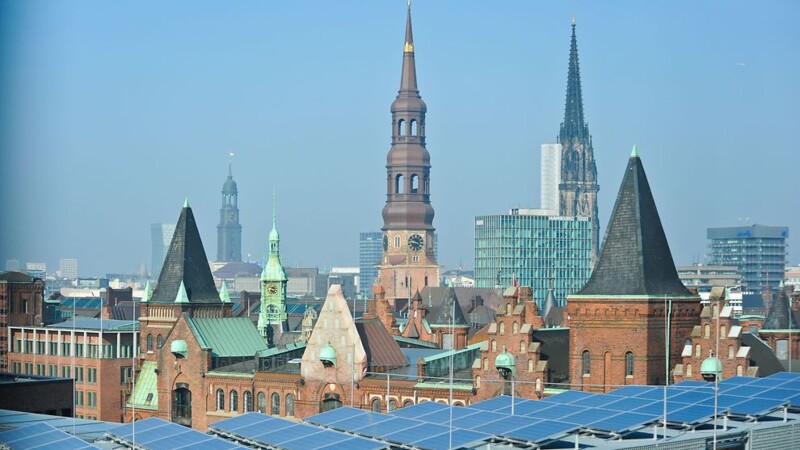The climate plan comprises around 400 measures and is one Hamburg's most important projects. Savings from mandatory photovoltaic systems could amount to 60,000 tonnes of CO2 by 2030, according to the Ministry for the Environment, Climate, Energy and Agriculture. The new regulations mean Hamburg is among the pioneers of climate protection in Germany's building sector. Jens Kerstan, Senator for the Environment, Climate, Energy and Agriculture, said: "We can and must make a significant contribution to the Paris Agreement through renewable electricity and climate-friendly heat in buildings. it is important to use suitable areas, preferably several times over especially in densely built-up urban areas."
Solar panels mandatory in all new buildings from 2023, Hamburg rules
Photovoltaic systems must be installed in all new buildings across Hamburg from 2023, according to the first legal ordinance on the Hamburg Climate Protection Act, which was passed by the senate in December 2020. From mid-2021, renewable energies must account for a minimum share of energy when replacing heating systems. Both the Hamburg Climate Plan and the Climate Protection Act have been adopted. The resolutions represent decisive measures for achieving Hamburg's climate goals which foresee a 55 per cent cut in CO2 emissions by 2030 and climate-neutrality by 2050.
Climate Protection Act and Paris Climate Agreement
Important step towards energy transition
The new regulations are an important step towards the heat and energy transition, said Kerstan. The principle of economic efficiency applies and solar systems must pay for themselves within 20 years maximum. The use of renewable energies could also avoid higher electricity and heat costs in Hamburg in the long term. In view of the economic and cyclical consequences of the coronavirus pandemic, more solar and renewable heat plants offer an opportunity to strengthen Hamburg's economy and accelerate the energy transition, according to the Ministry for the Environment.
tn/sb/kk/pb
Sources and further information
More
Similar articles

Renewable energies: crisis as historic opportunity for innovation

HAW Hamburg and FH Erfurt research "urban walkability"

